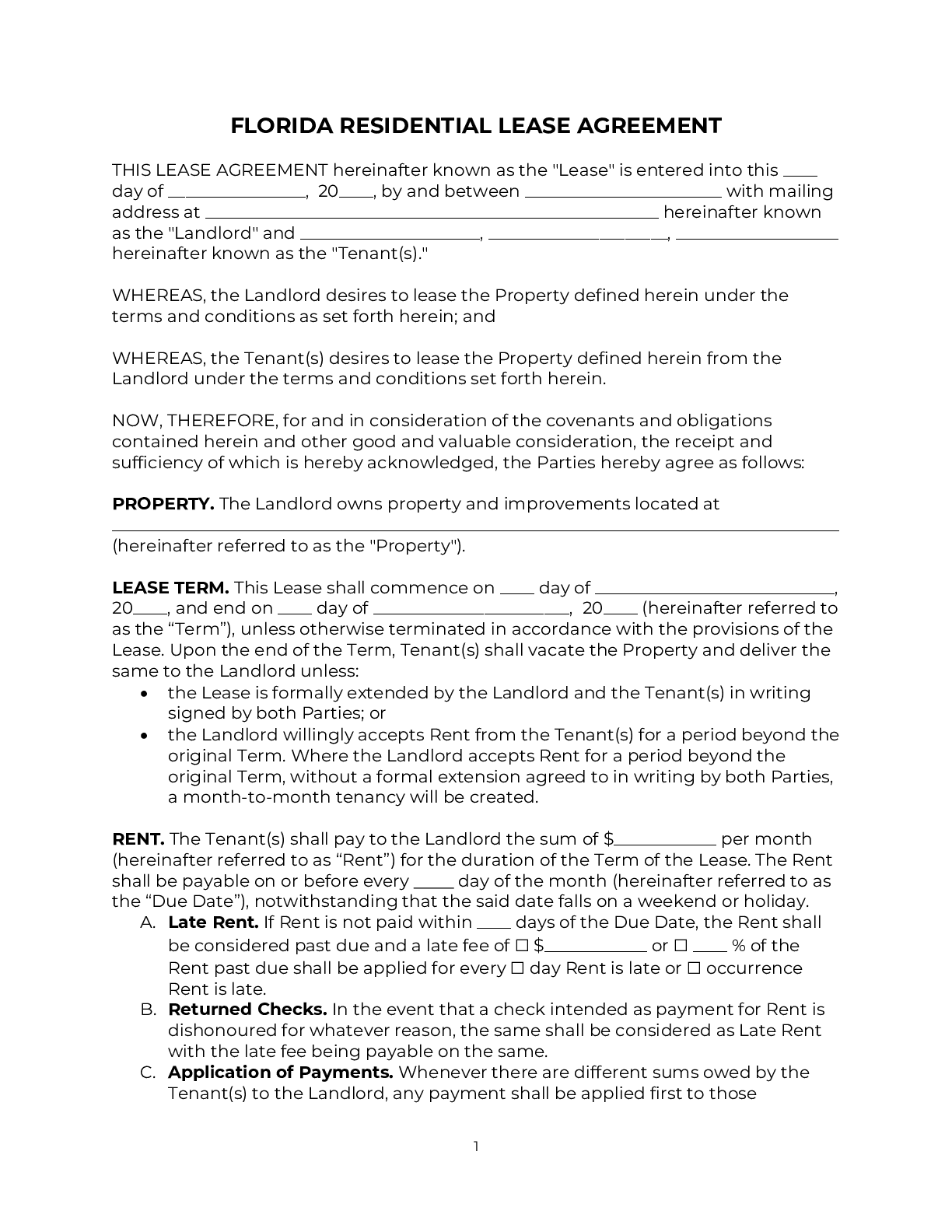Florida's Legal Requirements for Residential Lease Agreements
Florida's Legal Requirements for Residential Lease Agreements
Blog Article
Leasing a property is really a substantial commitment, and the lease contract is the legitimate blueprint that traces the terms and conditions of one's tenancy. Whether you're a first-time renter or an experienced tenant, understanding your lease is crucial to an easy rental experience. That comprehensive manual may walk you through the key aspects of a typical florida residential lease agreement to make certain you're well-informed and prepared to copyright your conclusion of the deal.
The Basics: What is a Florida Residential Lease Agreement?
A residential lease contract is an agreement between a tenant and a landlord, placing out the rights and obligations of every celebration over a hire property. In Florida, a lease deal an average of contains the lease expression, rent volume, security deposit facts, and any additional terms agreed upon by the landlord and tenant.

When you sign a lease, you spend to spending book and following the guidelines collection forth by the landlord. The lease also grants you certain rights, like the to calm enjoyment of the home for the duration of the lease term. It's crucial to note that you can't only back from the lease deal – there are usually penalties for breaking the lease, until certain clauses permit early termination.
Important Sections to Review in Your Florida Lease Agreement
Rental Property Details
The lease should clearly state the handle of the rental house, including the precise model if it's part of a larger complex, the residence number, and a quick explanation of the property. This section should also contain factual statements about any involved amenities or use of common areas.
Lease Term and Renewal
The lease deal identifies how long the tenancy may last. It will generally be for a collection time, such as for instance 12 months, but month-to-month leases may also be common. If the lease includes a renewal solution, ensure you understand the phrases for extending your tenancy.
Rent Payment
That part traces the lease volume, the deadline, and appropriate ways of payment. It's important to know late costs, acceptance times, and any penalties for bounced checks and other payment issues.
Security Deposit
California legislation limits the amount a landlord can collect as a security deposit. The lease should detail the actual sum you're required to pay for, as well as the problems below which the deposit may be withheld at the end of the lease, such as for damage beyond typical wear and tear.
Tenant Responsibilities
This part outlines what's estimated of you as a tenant, which could contain maintaining the home in good condition, precisely getting rid of garbage, and subsequent community rules if you're living in a complex.

Landlord Responsibilities
Here, the landlord may record their obligations, such as for example making required fixes and following state and regional regulations for giving habitable residing conditions.
Other Terms and Conditions
This catch-all section may protect many different subjects, from puppy plans to subleasing permissions to the proper of entry. Make certain you're more comfortable with and realize these extra phrases before signing the lease.
Conclusion
Your lease contract is just a roadmap for the tenancy. Taking the time to learn and realize its contents is an essential step in being fully a responsible and knowledgeable tenant. When you have any issues or something in the lease is unclear, don't hesitate to question your landlord for clarification or consult with a legitimate professional. Recall, a great lease serves the passions of both parties, ensuring a sincere and trouble-free hire experience.
Report this page